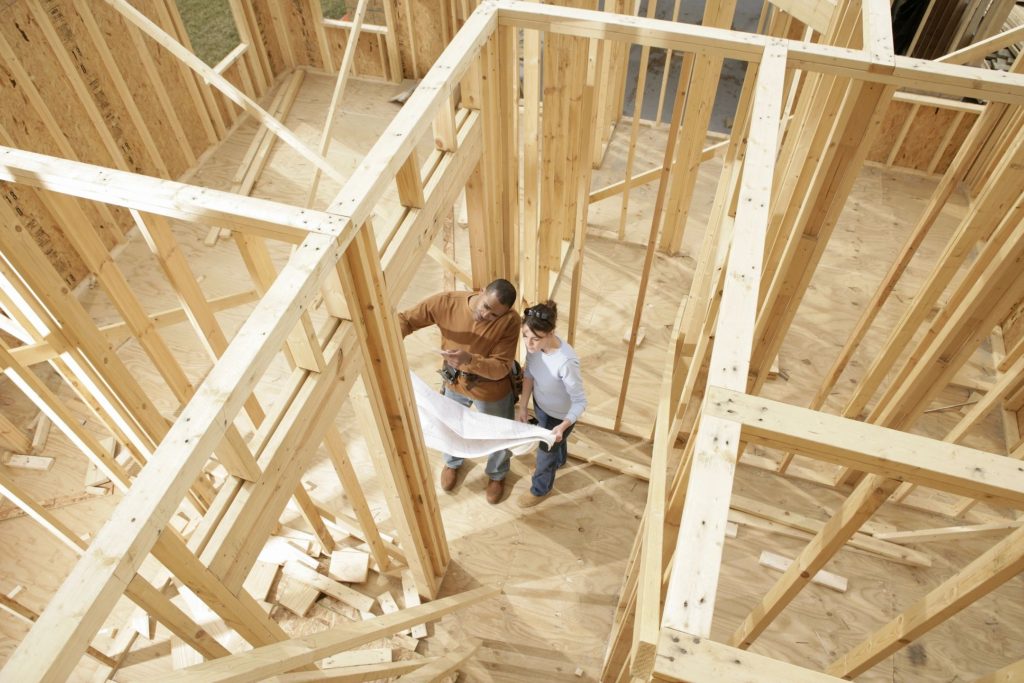
Purchasing a new construction home is an exciting process as you watch your dream home come to life. There is nothing like the “new ” smell once you move in. If you’re considering purchasing new construction, here are a few tips that you should keep in mind.
Hire the best local real estate agent who will best represent you and your interests during your home search and the home building process. Be sure that it’s someone who has experience in new construction and regularly deals with builders, but isn’t affiliated with the builder. Find a trusted agent even before visiting a builder’s home construction site. Many model homes are represented by a real estate agent who has a relationship with the builder, and many builders won’t allow you to hire your own agent once you already visited their sales office without representation. Seeking the help of a knowledgeable professional who regularly deals with builders and knows the local community will save you time and money. Besides, it will cost you nothing as a buyer to be represented by an agent since it is typically the seller who pays for the commission. Many builders are also happy to work with agents.
Do your research on the builders. Search for online reviews, testimonials, and any news and updates you can find. Then check for the validity and trends in those reviews, since many builders will surely have a history of both happy and unhappy clients. If possible, also talk to local homeowners or current residents. Connect with them in online groups or communities through social media to better educate yourself before making a decision. Also research on the location and the community where the new construction is being built where you can learn about your potential neighbors as well. Ask your Realtor if they’ve worked with the builder before and gain insights about their reputation.
It’s normal to be fascinated by that picture-perfect model home, but don’t let it blind you. Model homes are, of course, decorated to look desirable and striking. They have been furnished and staged so that rooms will appear bigger. Model homes were often constructed using a mix of standard materials and fixtures and include many upgrades which don’t necessarily represent what you can get, so it’s crucial to note what exactly you will be getting. Enlist the help of your agent to get a list of the standard features and common upgrades, together with their associated costs.
Most builders are reluctant to lower their prices because it may set a precedent for future buyers in the development who may expect similar discounts. The best way to negotiate with a builder is through upgrades. Consider asking for the builder to negotiate “on the back end,” such as paying for closing costs and performing upgrades at no additional charge. This is the less obvious way for builders to sweeten the deal while still maintaining the value of their neighborhood. With the help of your agent, research the builder’s negotiating style so that you can plan for an effective way to make a creative offer.
Consider other sources where you can find a lender who will offer you the best deal. Don’t automatically use the builder’s own lender without shopping around for better options. Builders often have their preferred lender so that they can be fully informed of your personal progress as a borrower. However, they may not work with your best interests in mind. Your agent can also help you by referring a trusted list of private lenders.
For some instances where the builder’s preferred lender is the only option, find out if there are incentives, special offers, or competitive rates available to you if you agree to use the builder’s own lender. In some situations, it can be a cost-efficient option since they are often willing to offer competitive rates and terms, especially if the builder owns the lending company.
Get an inspection! New homes can have problems or defects since construction workers can make mistakes as well. There may be problems with the HVAC or plumbing installation that only a licensed home inspector can detect. Getting an independent inspection is always a good idea since any problems can be identified before a builder’s warranty expires. It will also help you learn more about the home. A home inspection will guarantee that everything is safe and up to code.
Even if you are working with a respectable builder, make sure that everything you have negotiated and agreed upon will be included in writing. They may honor your requests, but verbal conversations are not binding so they may forget about the promises they made to you. Make sure that everything important will be put in binding documents that must be signed by all parties. It’s especially crucial if you are buying a home that is not yet complete. Your experienced real estate agent can help you ensure everything is in writing and that all documents are properly signed.
Lastly: ask about warranties. Find out what is and isn’t covered and for how long, since not all warranties are created equal. Most builders use third-party warranties that cover materials and workmanship. Builders often use construction materials from different manufacturers or suppliers, like for windows or tiles, so those products may have separate warranties. There’s a great chance the builder might refer all issues to the manufacturers instead of handling the issues directly. Get the builder to specify each product’s warranty information so you can prepare your offer documents to address any concerns before closing. Warranties will also help you understand the process you need to follow once something needs to be fixed.

 See Our National Coverage Map
See Our National Coverage Map